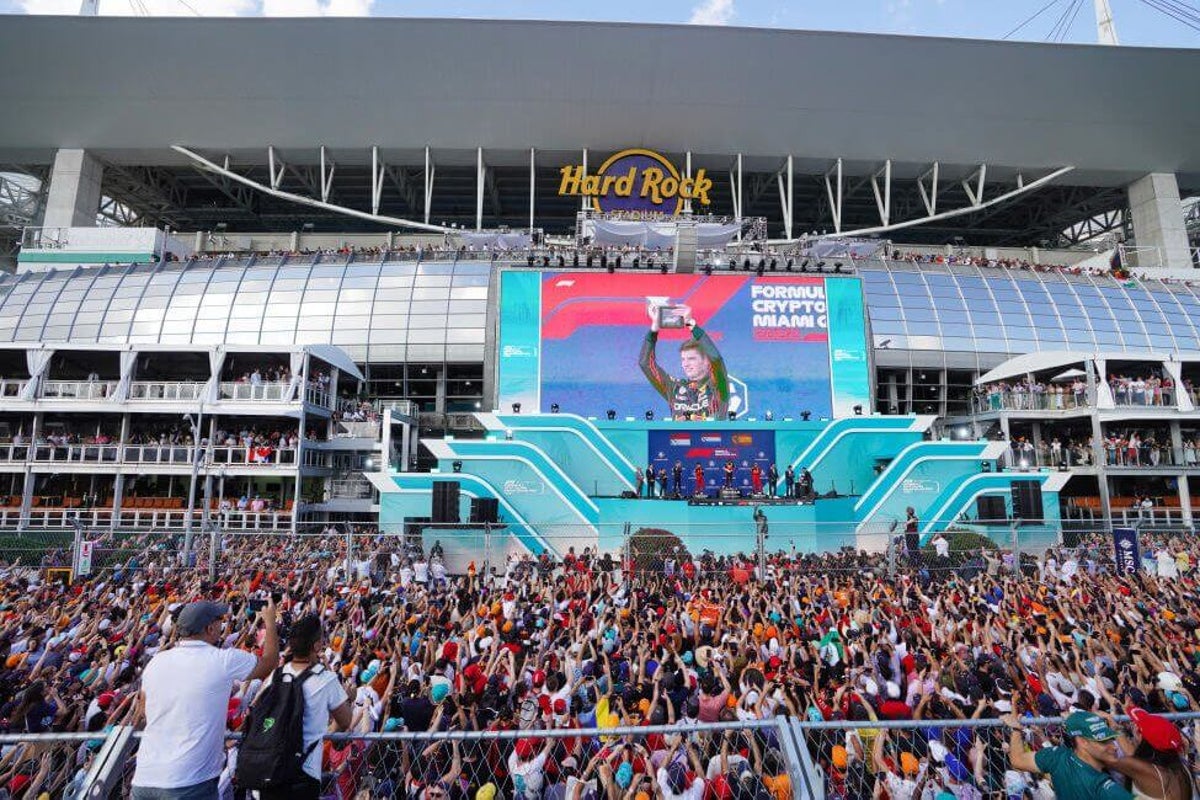MIAMI — Formula One will continue to race in Miami until at least 2041 after announcing a 10-year contract extension for grands prix at the Hard Rock Stadium on Friday.
The Miami Grand Prix joined the F1 calendar in 2022 as the second American race on the schedule following the United States Grand Prix in Austin, Texas, signing an initial deal through to 2031. A third American race — Las Vegas — joined the calendar in 2023.
But ahead of the fourth running of the race at the Miami International Autodrome that surrounds the Hard Rock Stadium, officials announced a new, long-term extension.
The deal gives Miami the longest outstanding contract on the F1 calendar, surpassing the agreement in place for Bahrain that runs until 2036.
F1 CEO Stefano Domenicali was joined by Tom Garfinkel, the CEO of the Miami Dolphins and managing partner of the Miami Grand Prix, to announce the contract extension on Friday.
‘A major statement about F1’s future in the U.S.’
When Miami joined the F1 calendar in 2022, it was the first big move by the sport’s owner, Liberty Media, to expand in the United States — a market it had long deemed underserved and filled with untapped potential.
While much of the focus has since been drawn by the glitzy Las Vegas Grand Prix, Miami has matured as an event and has quickly become one of the most popular races among drivers and team personnel in the paddock.
Aston Martin’s Fernando Alonso said on Thursday that it was “one of the best” grands prix of the season — chiefly due to the paddock experience and the atmosphere at the race. For the race weekend, teams are housed on the field inside the Dolphins stadium, which is converted into the F1 paddock.
The main criticism of the event in Miami has surrounded the race track itself, which Alonso said was “not the most interesting for the driver, but (is) still producing a good show on Sundays.”
This new deal, nevertheless, marks a significant statement from F1 about the future it sees in the United States. When both Miami and Vegas joined Austin, the big challenge would be whether there was enough interest in the United States to sustain three races in a season.
But each event has managed to establish its own identity and, importantly, its own fan base. This has been aided by the spread across three different time zones (ET for Miami, CT for Austin and PT for Vegas) and three substantially different fan offerings.
The deal also gives F1 date equity within the busy Miami events scene. Between F1 packing down after Sunday’s race and the start of the football season in fall, the stadium will be hosting a series of Club World Cup soccer matches and concerts from Shakira, Post Malone, Morgan Wallen and Coldplay.
(Photo of Max Verstappen celebrating his race win in 2022: Alex Bierens de Haan/Getty Images)

